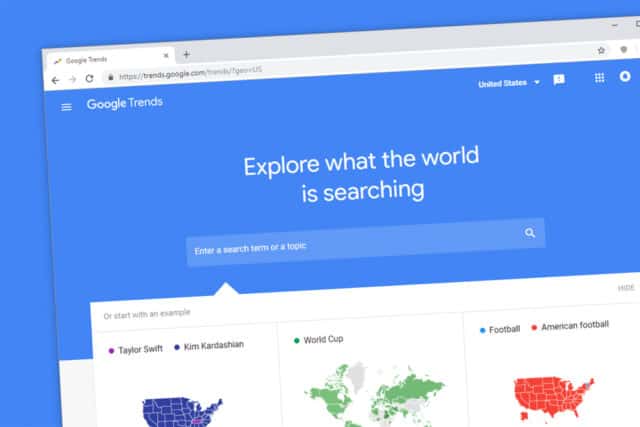Focus Keyword: How Important is it really for SEO strategy?

You’ve undoubtedly heard the phrases “keyword” and “keyword research” if you’ve ever researched SEO. Keywords, as well as key phrases, are a set of words that people type into search engines to find information and data.
They’re often used by Google and other search engines to rank websites based on which ones they think will be most relevant to the user’s query. You could potentially use them to influence Google’s ranking of your website.
Keywords and keyphrases might help you rank higher in search engines. Keyword research involves discovering what people have been looking for in Google, Bing, or other major search engines. These words and phrases have anything to do with the items and services that your website offers.
Your organization or business’s efficiency is improved by keyword research. A large part of keyword research is truly understanding your customers and the queries they’re having. Then figure out ways and strategies to address these queries through your content using a mixture of keywords and phrases.
What is a focus keyword?
A focus keyword is a word or phrase from the list of possible primary keywords you want your website or blog to rank for. It aids in the improvement of your search engine ranking by making it more straightforward for visitors to reach your website.
Focus keywords are usually related to your business and/or products. The primary goal of the focus keyword should be to generate content around it that ranks well in major search engines.
To increase organic traffic, you must conduct thorough keyword research before deciding on your focus keyword. Focus keywords are used by search engines like Bing or Google to determine which pages should rank higher than others. They’re often used to target specific audiences, but they can also increase traffic to your website.
How do they work?
If you are running a restaurant, for instance, you may use “restaurant near me” as a focus keyword. If you’re selling an organic product online, you could choose “best organic food” or “organic food reviews” as a focus term.
What is a Focus Keyphrase?
It is the phrase you want to search for on Google or other search engines. It may be a single phrase or a series of words, but most often, it’s a combination of several words. That is why it is referred to as a keyphrase.

Imagine that you are optimizing your post for the term “healthy snacks” to get your blog post ranked in search results. You may also use a focus key phrase that is longer. You could, for example, write an article on healthy snacks that are specifically designed for children and optimize them for ‘healthy snacks for children.’ You can also write a post on healthy snacks you can eat after a workout and optimize them for ‘healthy snacks after a workout.’
What is the significance of keyphrase length in SEO?
Short phrases that describe the value of a service or product are called focus keyphrases. They should be relevant to your audience and can include words like “free,” “fast,” “easy,” etc. There are many ways to choose a key phrase used in your pages or posts.
There are two options: optimize your article for a specific, general keyword. These keywords are more popular and get lots of search traffic. They also face a lot of competition.
For example, let’s take the keyword snacks. Many individuals will look for this term. There will be a slew of businesses optimizing for this keyword.
You may also choose to optimize for a particular and longer keyword known as long-tail keyphrases. These key phrases receive less search volume yet convert at a higher rate. As they’re more focused on a single product or topic, they receive less search traffic.
A lot of people look forward to breakfast. People are less likely to look for long-tail keywords such as “healthy breakfast options for kids.” However, the longer tail keyphrase is more likely to lead people to the correct information because they use a more specific term.
It is more challenging to optimize your posts with longer keyphrases. It will be challenging to maintain readable copy because you’ll need to use the exact key phrases repeatedly.
Short Tail Keywords

Short-tail keywords, often known as “head terms,” are search phrases with only one word in them. Short-tail keywords must be employed to increase traffic to the website because they allow you to reach more customers. This group, on the other side, might not be keen on making a purchase or taking any action on your online site.
When selecting short tail keywords for whom we want to rank, there are a few considerations to keep in mind. The smaller the keyword, the more significant it is in terms of search volume. Thus, short-tail keyword competition is intense. When you index and position well for short-tail keywords, you’ll get a lot more website views.
Long-tail keywords
The long tail of search terms is where most people look for information online. You must optimize your website for those terms to rank well for them. This entails populating your site with relevant material and ensuring that it opens swiftly. It also means optimizing your backlinks so they point to high-quality sites.
Targeting your primary and secondary keywords
The best thing to remember when targeting keywords is to ensure they’re relevant to your content. Even if you are positioned first, the traffic from a single keyword will rarely reach 30% of your total traffic.
To assist their content rank better in search results, SEO professionals and content producers use primary as well as secondary keywords to target specific search queries. If your site has a lot of pages on gardening, then it’s probably not going to rank well if all those pages contain the word “gardening” in them. Instead, try using phrases like “how to grow tomatoes,” “the best way to plant seeds,” or “what tools should I use.”
Primary Keywords

The terms you want to rank for are known as primary keywords. These terms with high search volume can bring a lot of visitors to your site.
As a general guideline, your primary keywords should be aimed at a broader audience and dispersed throughout your website’s material.
Titles, headers, links, and the starting and end lines of your article or blog should all contain your primary keywords.
On each page, you should use a maximum of 2-3 major keywords and a minimum of one.
Secondary Keywords
This is a list of keywords that can be used as a backup. In other words, secondary keywords provide supplementary information while also supporting the major keywords. In order to deliver value to the final reader, you must use these keywords effectively across your article.
Although secondary keywords do not have the same SEO impact as prime keywords, they can still help you outrank your competition.
If you want to be successful online and surpass your competition, you must use a mix of the primary keyword and secondary keyword.
Start with seed keywords
A seed keyword is a one- or two-word keyword with a short tail. Seed keywords, like most other short-tail keywords, have significant monthly search volumes and intense competition. Modifiers will not be present in seed keywords, although they may or may not be present in short-tail keywords.
Seed keywords are intended to grow other keywords for which your website might be optimized. After you’ve discovered many excellent seed keywords for your website, you may create long-tail keywords by pairing another few relevant seed keywords with modifiers. A seed keyword might be something like “website marketing.”
Modifiers can be used by a marketing agency that concentrates on advertising services or products on its own website to come up with fresh long-tail keywords like “website marketing recommendations” or “website marketing strategies.”
Seed Keywords & SEO Strategy

Seed keywords, despite their competitiveness, can help your website achieve SEO success and rank better in organic search results if employed effectively.
You’ll have a foundation for developing relevant long-tail keywords with seed keywords.
Because long-tail keywords have little competition when compared to short-tail keywords, most webmasters optimize their pages for them.
However, if a long-tail keyword is not related to a webmaster’s webpage, it won’t help with SEO.
Seed keywords can help you stay on track with your SEO strategy by allowing you to quickly produce relevant long-tail keywords that all include the same seed term.
Choosing the Best Seed Keywords
You must choose the correct seed keywords since they impact your site’s long-tail keywords. When choosing seed keywords or creating a seed keyword list, don’t worry about competition. Their brief and general style makes them highly competitive than lengthier and more precise keywords. Rather, select seed keywords that match the website content and can be expanded with modifiers.
Ideal Place for Seed Keywords
You must generally put seed keywords on the homepage of your website. Long-tail keywords should be optimized for subpages. Make sure you’re not focusing on several seed keywords. The usage of keywords in metatags is required for on-page SEO. The idea is that if people search for those terms, they’ll find your site first.
What are Negative Keywords?
Negative keywords are words or phrases that you never want to display on your website in any form. These are usually used to prevent people from searching for specific terms that could cause harm to your business.
Types of negative keywords

Negative keywords allow you to exclude specific words from appearing in search results. For example, if you want to ensure that “seizure” doesn’t appear in your site’s title tag, you could add it to your negative keyword list. This will make it impossible for your webpage to appear in search engine result pages for all those terms.
Negative keyword match types
The negative keyword match type allows you to exclude specific words from appearing in search results. For example, if you wanted to target people searching for “keto recipes,” you could set up a negative keyword match type that excludes any terms related to “recipes.” This will allow you to show only relevant content to visitors who are looking for keto recipes.
Negative broad match
The negative broad match is a feature of Google Search that allows users to search for content based on keywords rather than just exact matches. This means if you type “how to lose belly fat” into the search bar, you will see results from websites that contain the word “belly” but not necessarily the word “fat.”
Negative phrase match keyword
A negative phrase match occurs when your website appears in search results because someone else has used the same keywords in their content. This could happen if they copied and pasted text from another site without changing it.
A negative phrase match is similar to a negative broad match, except it searches for phrases instead of individual words. For example, typing “low carb recipes” into the search box will return results from sites that contain the phrase “low carb” without having to include the whole thing.
Negative exact match

You may use the negative exact match tool to filter out particular terms from search results. For example, if you wanted to find all the posts containing “keto” but not “low carb,” you could enter “keto -low carb” into the search box. This will only return those posts which contain both keywords.
Find your keyword target
You may use keyword targeting to discover which keywords customers are looking for while searching for your service or product. It helps you understand what they want to know and where they want to look next. This will give you insight into what content you should be creating and where it should appear on your website.
Using the keyword tool for keyword research

The Keyword tool allows you to find out which specific keywords people use to search for information about your product or service.
There are several free tools and paid tools available for keyword research. It will show you where they’re searching from and the search volume. Some of them even show keyword difficulty.
To get better results for your Google Ads campaign, try to exactly match keywords and add negative keywords too. This gives you valuable insight into how to improve your content strategy.
Conclusion
Focus keywords are essential for SEO strategy. They don’t cost extra, don’t take up space in posts, and can have a significant impact on traffic. The first page should contain the focus terms. You should refine the keywords from your previous keyword research. You’ll be able to find the most relevant online sites, blogs, articles, and papers for your topic by doing so.
You can use focus keywords and phrases to help you create a systematic approach to developing a keyword strategy. They can also help you determine how niche-specific your company should be and which areas of your website should have the most focus. Researching the perfect keywords for your area might be time-consuming, but it is definitely worth it.
Subscribe to our Newsletter
Sign up to receive email updates on new product announcements, exclusive sales and marketing content, special offers on email validation plans, and more.
We send curated content as per your preference and do not indulge in spam!
What would you like to know about
We’re committed to your privacy. TuxMailer uses the information you provide to us to contact you about our relevant content, products, and services. You may unsubscribe from these communications at any time. For more information, check out our privacy policy.



